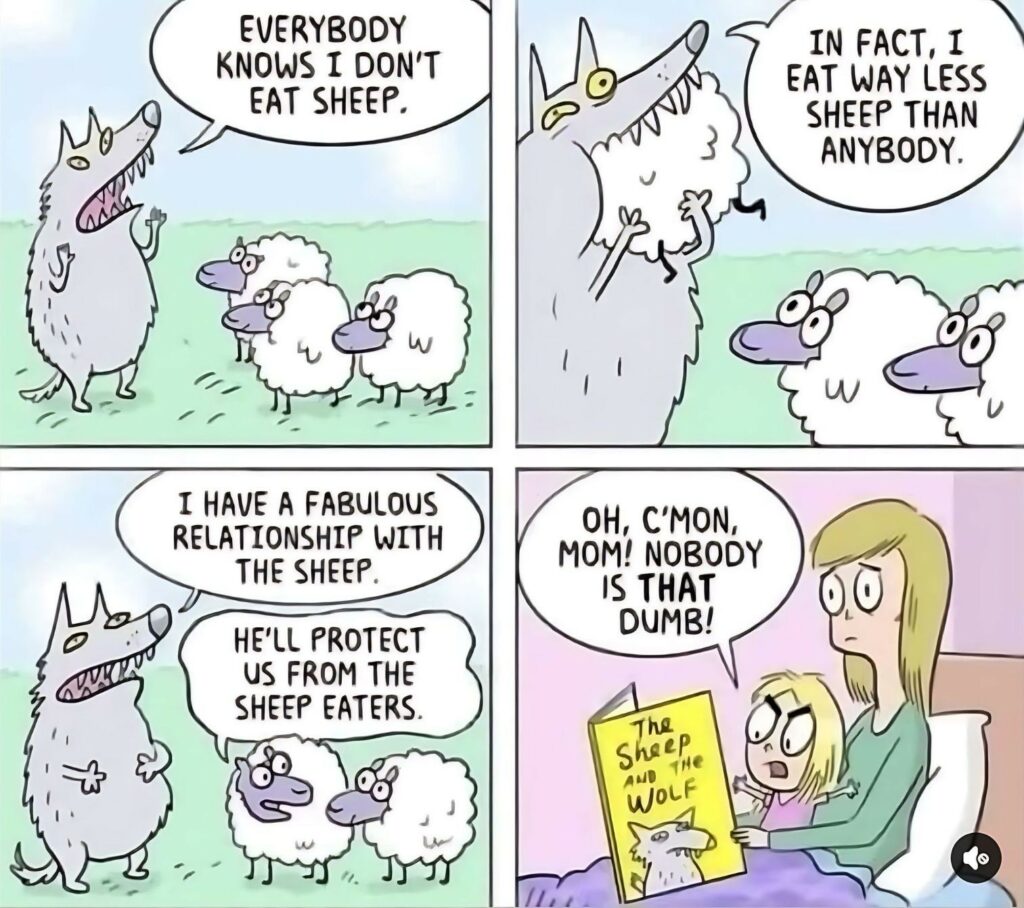“We don’t need to talk about the climate, we don’t need to talk about change. What we need to talk about is power and criminality and evil.”

Lying as a tool for blocking change has become the pervasive issue, especially when people use it to protect the status quo and avoid facing uncomfortable truths. This obstructs the collective efforts needed to talk about problems like #climatechange, social inequality, and the erosion of democratic #openweb communication paths. Tackling this involves a #4opens culture where honesty and accountability are valued, while simultaneously recognizing that some of these distortions stem from deep-rooted personal, social, and economic fears.
- A first step is creating a culture where truth is valued, especially when it challenges the self-interested comfort of those involved. In functioning open networks, communities have shared values, that rewarding honest dialogue and penalizing deceptive behaviour that hinders constructive paths. This transparency can be incentivized by showing how it benefits collective goals over (stupid) individual agendas, aligning values to encourage honesty as a default. We need to establish clear, collective values around truthfulness:
- Encourage critical thinking and #KISS media literacy – People lie and distort truth when they lack confidence in understanding complex topics and thus feel pressured to align with dominant easy stories. A culture of media literacy empowers people to spot misinformation, resist manipulative tactics, and feel more comfortable confronting inconvenient truths rather than ignoring or reshaping them for comfort. Equipping people with these skills means fewer incentives to hide and distort facts and paths.
- Promote accountability mechanisms – When dishonesty is not held to account, it reinforces a culture where lying is acceptable. To push back at this, transparent accountability culture is helpful, especially in influential sectors such as media, politics, and social organizations. Accountability encourages people, institutions and communities to take responsibility for the information they use and host, helping to establish truthfulness as the norm rather than an exception.
- Normalize difficult conversations – Lies are used as a shield to avoid uncomfortable subjects, especially in collective spaces where the potential for friction is high. Encouraging a culture of dialogue, where differing opinions are expressed without retaliation, reduces the need for deception. By creating “active zones” for conversation and providing conflict-resolution traditions, groups address the root issues without resorting to dishonesty.
- Use positive reinforcement for transparency – Rather than punishing instances of dishonesty harshly, positive reinforcement can reward honest behaviour, making it a habit. When communities highlight examples where transparency led to better decisions, improved paths, and strengthened trust, it becomes a wider, easier path for more people to take. Celebrating transparency that benefits a project or a social goal helps to erode the perception that lying is needed, necessary or advantageous.
- Acknowledge the root causes of lying as a defense mechanism – Often, people lie as a defence against vulnerability, fear of judgment, or loss of control. Recognizing these underlying motivations makes it easier to address them constructively rather than combatively. Providing support, whether through promoting self-awareness, emotional resilience, and ethical decision-making, reduces the pressure people feel to lie as a way of self-protection.
- Build grassroots movements focused on integrity – Lastly, seeding grassroots movements that are on the #4opens path, embodying integrity, transparency, and accountability. Small, community-driven groups have the agility and cohesion to establish trust-based paths, which can serve as seeds for horizontal scalable wider networks to balance the mess coming from larger, dominating #mainstreaming institutions. By showcasing effective grassroots paths, we influence larger systems and set a precedent that truth is not optional.
In a world where lying undermines our needed genuine change, mediating its pervasive use requires #4opens strategies that push transparency, mutual respect, and courage. Changing a culture from one where lies are tools of convenience to one where truth is a shared value is core to the change and challenge we need. This will not be easy, but when we can, and needs to start closeting the gap between intentions and actions. This shift of path from lying to truth is #KISS to addressing the complex mess of our time, growing truth, rather than deception, feeds our paths.
http://open.live.bbc.co.uk/mediaselector/6/redir/version/2.0/mediaset/audio-nondrm-download-rss-low/proto/http/vpid/p0jzkcp5.mp3 isn example of this, #mainstreaming lying from the USA on the subject of #climatechange that shows the #deathcult we have all been worshiping.
2 thoughts on “We need to compost the current culture of lying”